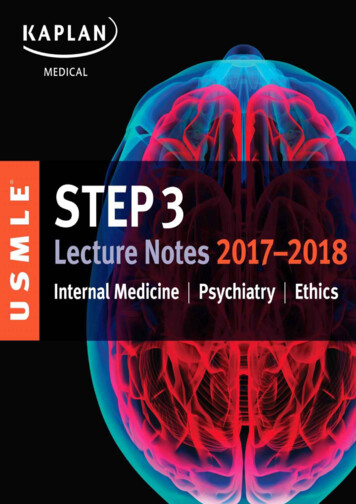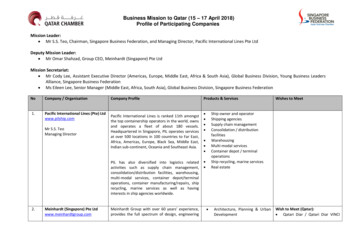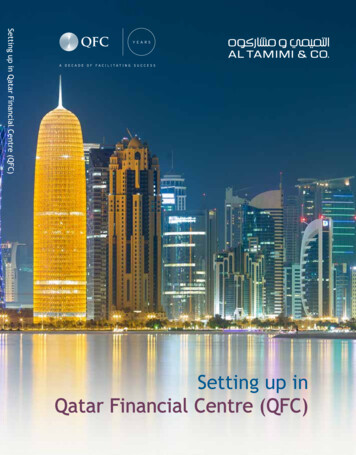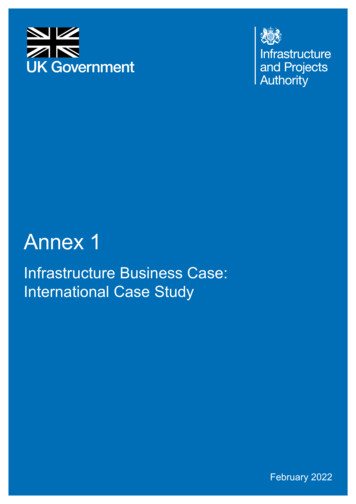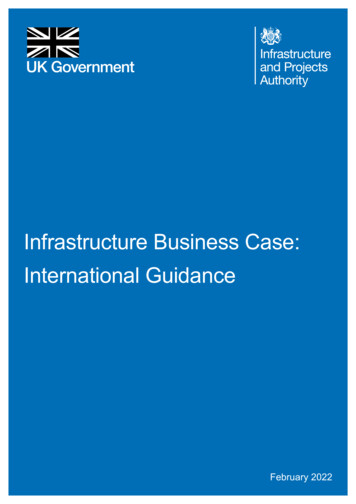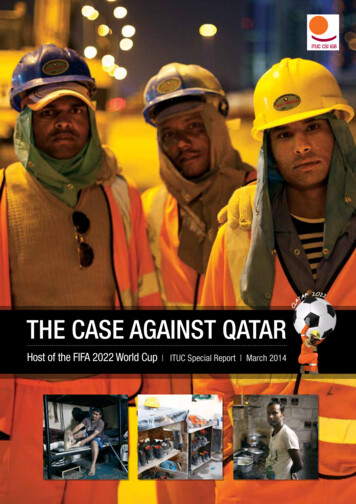
Transcription
THE CASE AGAINST QATARHost of the FIFA 2022 World Cup ITUC Special Report March 2014
Front cover main photo: Benjamin Crowe.Inset photos from left to right: Matilde Gattoni, Benjamin Crowe, Benjamin Crowe.Montage photo credits: ITUC, Benjamin Crowe, Matilde Gattoni
CONTENTS1. How FIFA and the 2022 World Cup can be a catalystfor change.62. The ITUC case files.73. Worker fatalities.144. Inadequate responses.165. A broken system.20Recruitment agencies.20Corporate behaviour.20Qatari legal system.20Detention centres.23Minimum wages.25Labour inspectors.256. International law.28Appendix : Sample Contract Provisions for Qatar 2022Contractors.31
4THE CASE AGAINST QATAR4 THE CASE AGAINST QATARForeword - Trapped in QatarQatar is a country without a conscience.While there are many highly educated and many generous Qatari citizens, the reality isthat there is only a facade of government. Qatar is run like a family business. Ministerswith little power try to manage portfolios that democratic governments usually manage,but with only the shadow of a civil service.“Qatar is acountry withouta conscience.”Fundamental rights and freedoms do not exist for workers in Qatar whether for poormigrant workers or highly paid professional expatriates. Foreign workers are enslaved– owned by employers who hold the power of recruitment, total control over wages andconditions of employment, the authority to issue ID cards (not having an ID card canlead to prison) and the ability to refuse a change of employment or an exit visa to leavethe country. This is known as the kafala system.Poor migrant workers living in squalor, are forced to work long hours in unbelievable heatsix days a week. Kept in an apartheid situation they are dying in unprecedented numbers.Foreign embassies in Qatar are forced to keep quiet about the mass deaths of theircitizens out of fear of retaliation by the authorities. Diplomatic sources say they havebeen urged to play down or deny work-related fatalities, with the threat of turning offthe flow of remittances from Qatar to home.Women and children without husbands or male sponsors, and the victims of abuse,including rape, are imprisoned in detention centres that are crowded and unhygienic.Detainees have no knowledge of what fate awaits them. Embassies are not given fullaccess to the detention centre, and no records of who has been detained are available.There is no effective labour compliance system in what is effectively a police state. Theminuscule labour inspectorate is no match for the vast number of worksites and labourcamps in and around Doha.The ITUC recently visited several thousand workers in ten labour camps to the east andsouth of Doha. Labour camps are run by slum landlords who rent them to companies,or are managed by the companies themselves. A camp boss or company security guardpatrols the camp. Many do not even provide fresh water. I tasted the salty water usedfor drinking and washing.The Industrial Area, 25 km from downtown Doha is a grid of 52 streets lined with busesto transport workers to sites, JCBs and hazardous machinery. Behind the compoundswith the machinery are single and sometimes double story buildings with rooms of eightto twelve workers, one toilet and washing area and one kitchen. Sixty percent of labourcamps in the Industrial area are home to Nepali workers.Grown men said they were treated like animals, living like horses in a stable.
ITUC Special Report - March 20145ITUC Special Report - March 20145Saniya is 35 km from Doha and has a similar set of ramshackle buildings, industrialequipment and homes. Generators provide power, and raw sewage can be seen running by the camps. Al Wakrah, 27 km south of Doha, home of one of the World Cupstadiums, has numerous labour camps.Blue overalls and men’s clothes hanging out to dry are ugly clues to the squalor of thelabour camps that Qatar chooses not to acknowledge.It is clear that no inspector has visited the labour camps we saw for a long time, if ever.An ineffective court system, made worse by employer delaying tactics, can mean thatyears pass before a judgement is issued, while workers are trapped without incomeand without support.Photo: Benjamin CroweWorkers are trapped in a broken system.Tragically a small number of Qatari power brokers have chosen to build the trappings ofa modern economy off the backs of exploited and enslaved workers.Qatar must change. FIFA can make a difference by making the abolishment of kafala andthe respect of international rights a condition of Qatar hosting the World Cup in 2022.If FIFA demand Qatar abolish kafala and respect fundamental international rights, it willhappen.This ITUC special report shows further damming proof of how far Qatar will go to denyworkers their rights. New evidence includes: salty water being provided to workers in camps for cooking and washing, employers demanding deposits of US 275 are paid by workers before they are allowed to leave for holidays, over 2500 Indonesian maids a year fleeing from abusive sponsors, workers in squalid accommodation at the Al Wakrah stadium.Let me introduce some of these workers to you. These cases documented by our legalteam, show the serious abuses of 1.4 million migrant workers in Qatar.Sharan BurrowGeneral Secretary, International Trade Union ConfederationFIFA demand Qatar“Ifabolishkafala andrespect fundamentalinternational rights, itwill happen.”
6THE CASE AGAINST QATAR1. How FIFA and the 2022 World Cup canbe a catalyst for changeQatar is a government which takes no responsibility for workers. 140 billion of infrastructure is forecast to get Qatar ready to hostthe 2022 World Cup. Qatar’s own estimates are that 500,000 extraworkers will be needed in the run up to the World Cup.Frequent contacts with Qatar authorities since late 2011 haveshown no political will or progress towards Qatar implementinglabour-related commitments of the Qatar National Vision 2030to reform kafala and ratify a further fourteen ILO conventions.FIFA has said it expects international norms of behaviour fromall hosts and expects that the FIFA World Cup can triggerpositive social change in Qatar, including improving the labourrights and conditions of migrant workers. On 21 November2013, FIFA called on “economic and political leaders to join thefootball community in contributing to ensure that the International Labour Organization’s core labour standards are introducedquickly, consistently and on a sustained basis in Qatar.”What Qatar is Not DoingQatar’s response to public criticism and to official contacts overthe past three years has been piecemeal, anarchic and focused onpublic relations: Despite public promises, there has been no change to thekafala law; There have been no moves to bring legislation into line withinternational standards on freedom of association and collective bargaining; Qatar has refused to work with reputable international labourhire companies, whose involvement would help to clean upthe exploitative, chaotic and abusive way in which migrantworkers are recruited in sending countries; “Workers Charters” promoted by Qatar in the media over thepast year have made no difference – the death toll is increasing and exploitation is still rampant; Qatar has announced plans to re-house 28,000 migrantworkers in better accommodation – i.e., 2% of the migrantworkforce. Previous initiatives of this type have faced years ofdelays due to ineffective planning processes – getting a permitfor a skyscraper is much more easy than for a labour accommodation facility; and“Qatar has the financial means to support important reformsand effectively implement awide range of measures.”Gabriela Knaul, UN Special Rapporteur on theindependence of judges and lawyers.Qatar has implied in its public relations that it has been holding discussions with the ITUC on its “Charters”. The ITUCrejects this mischaracterisation of its efforts to engage in serious dialogue with Qatar.Recommendations for Migrant Workers’ Rightsin Qatar: End the kafala system; Introduce laws to allow freedom of association and collectivebargaining for all workers in Qatar; Put in place effective grievances procedures; Clean up the recruitment system and work with responsibleinternational recruitment agencies; and Ensure a minimum living wage, and end the race-based wagediscrimination which is rife in Qatar.
ITUC Special Report - March 20142. The ITUC Case Files*Names of the workers have been changed to protect their identities. Under Qatar’s draft media law, statements(whether true or untrue) harming the commercial reputation of a person or company can be considered a crime.Freedom of MovementCase tyJulie*Philippines26food service and housekeeping from 3:00 pm-12:00 am in some of themost luxurious hotels inDoha. The company driver picked us up at 1am.We got so little sleep. Weworked 26 days a month,all but Fridays, and eventhen our manager wouldyell at us to work on our one day off.1.4 millionmigrantworkers inQatarI have to return to my labour camp by 23:00. If I return late, myemployer makes salary reductions without notifying me.After being in Qatar for five years, I would like to take my annualleave and go back home for a short visit. The company practice isthat the manager demands a deposit payment of US 275 – anamount which I cannot afford in addition to the price of the ticket.Photo: Benjamin CroweI’m 26 years old and came to Qatar in January 2009 through a recruitment agency based in Manila, which charged me US 1000.When I first arrived in Qatar, my living conditions were horrible. For threemonths, I and 15 others who arrived together were forced to sleep on thefloor on a thin mattresses . We complained to the Qatar National HumanRights Committee about this and were moved into another accommodation. But even now eight people share one bedroom, sixteen peopleshare a bathroom and thirty-five people share a kitchen.Summer temperaturesreach50 C / 122 Fbetween June andSeptemberAll I want now is an NOC (Non Objection Certificate) letter so I canchange employer. My manager has become very angry becauseof the complaints from workers and told us that they we shouldstop complaining because the sponsor is a very powerful man andhe would not allow us to get another job if we decided to look forsomething else.A co-worker from Nepal died last year in our accommodation. At thetime he was under a lot of stress and had not been paid for a coupleof months.I signed up in Manila to bea waitress. However, ourcompany forced some ofus to work two shifts, firstworking as cleaners inschools all morning, from6:00 am -12:00 pm, andthen working in hotels inPhoto: Benjamin Crowe7
8THE CASE AGAINST QATARCase 2[Job][Sector][Name][Country][Age]KafalaQuantity SurveyorConstructionMat*Malaysia42I came to Qatar in 2008 to work as a senior quantity surveyor. Afterthe two-year project finished, my first sponsor gave me a Non Objection Certificate (NOC) to move to another company. When my secondproject finished two years later, that employer gave me an NOC tomove to another company.After a year of service at my new company, I wanted to apply for myannual leave in August 2013. I wasn’t able to get my leave approved;it was always rejected by the company HR department and the Executive Director. They said they were unable to find a replacementand would not sign my exit permit to take my leave.Finally I managed to get an exit permit in October, as I had a newbornbaby and needed to get documents signed at home. While I was onvacation, I was told I had thirty days leave. But the company still deductedmy salary while I was away on leave and refuses to pay it back, sayingthat they will pay it next year.They have still not paid me for my leave. I asked the company formy NOC if they were unable to give me my rights and terms in myCase 3[Job][Sector][Name][Country][Age]Wage discriminationKafala explainedUnder the kafala system, employers enjoynear total control over the movement ofworkers in their employ, including over theirability to reside in Qatar, to change jobs oreven to leave the country. Workers undersuch control are often afraid to report abusesor assert their rights for fear of retaliation,which further contributes to their situation inforced labour.contract. They said that I couldn’t leave the company because therewas no one to replace me. I volunteered to help them find a replacement but they refused. I now have an offer of employment, but thecompany refuses to give me my NOC even though I have a job offerfrom the tender department in a public office.I got advice form the Qatar National Human Rights Committee, but theysaid the company has the right not to give me my NOC. They told me tocomplain to the Labour Department if I have an issue related to salary andannual leave. Do I have any rights in this country?Photo: Benjamin CroweJunior clerk – ar is on trackto award US 24billion of newcontracts in2014I came to Qatar in 2007 towork for a facilities management company. Thereare about 650 workersfrom different countries,such as the Philippines,India, Egypt and Sri Lanka,employed in the company.We all do the same job, butsome workers earn morethan others. For example, colleagues who I trained earn US 824 whileI am earning 460. I believe I am discriminated against because of mynationality, but I am unable to leave this company because I would needthe permission of my sponsor.I am also a human being and deserve equal treatment after having invested years of work into the company, but my managers won’t listen tothis. Do I not have fundamental rights under international conventions?
ITUC Special Report - March 2014Case rTransportationBenigno*Philippines39I came to Qatar in February 2012 to work for a transportation company.There are about 5000 workers employed with this company.I signed a contract with a recruitment agency in the Philippines authenticated by the Philippines Overseas Employment Administrationand promising a payment of US 484 per month.But when I arrived in Qatar, my employer told me this contractwas invalid. He confiscated my passport and then presented mewith another contract with a payment of US 376 per month. Werefused to sign this contract because we were misled into this situation. However, I still started to work for the company because Ihave to pay back my debts back home of US 471.My colleagues and I are aware of the injustice that is done tous, but we are afraid to complain to the authorities. We see thatworkers who do complain are either blacklisted, deported orthreatened. Our managers told us that workers who go on strikeget deported within 12 hours.For me this means that I have to accept whatever conditions myemployer imposes on me. Recently, we were told that we’re notallowed to drive faster than 80 km per hour because of the trafficregulations. To get my work done, I now have to work during mylunch break as well.Photo: Benjamin CroweCase 5[Job][Sector][Name][Country][Age]Salarybedroom with five other people.DriverTransportationRobert*Kenya37I came to Qatar in 2012 to work as a licensed driver. I did not haveto pay a recruitment agency to come to Qatar, but instead I wentthrough a long application process involving several interviews withthe Ministry of Labour in Kenya.Both my passport and driving license were confiscated on arrival tomake sure that I couldnot work for someoneelse. Often I have tocarry out tasks such ascleaning or maintainingbuses which are notpart of my job description and for which Idon’t get paid. In addition, I have to share myAt the moment I am earning US 550 per month, which largely goesto my family in Kenya, so together with my colleagues we asked fora salary increase. Our managers promised us an increase whichnever materialized. I don’t feel like there is anything we can dobecause the government doesn’t care about any of these abuses.As Kenyan migrants we can only meet for social events but notto discuss any of the problems we have at the workplace, sincepeople are scared to speak about it in public.Qatar is therichest countryin the world on aper capita basisPhoto: Benjamin Crowe9
10THE CASE AGAINST QATARCase 6Fraudulent Contracts[Job][Sector][Name][Country][Age]Bus assistantTransportBelinda*Philippines32I came to Qatar through a recruitment agency “Vital Recruitment” inthe Philippines stipulating that I was going to work for the bus company and earn US 400. My contract said that I would be providedwith a part-time job according to my qualification.To pay for the 823 the recruitment agency charged me for the contract, I had to take a loan with a lending agency. But when I arrivedin Qatar, I was only paid 247. It is impossible tolive on 247 and pay mydebts, so I took a part-timejob in a sales and marketing company. My employertold me I owed 40 per centof my salary from my parttime job to him.90% of workershave theirpassportsconfiscated byemployersCase 7Grievances[Job]Technician[Sector]Fire protection o: Benjamin CroweWhen I first arrived, I had to share a bedroom with 11 persons withno space for my personal belongings.I find this situation unbearable and would like to change my employer. With a college degree I am convinced that I could find anotherjob, but it is impossible to get an NOC from my sponsor.I have complained to my embassy, which has not provided any assistance in this regard. My sponsor is a very influential person, soI am scared to go to the Ministry of Labour or the National HumanRights Committee.The company has provided us with extremely inadequate accommodation. The kitchen is not hygienic, the bedrooms are crowded, thedrainage in the showers is clogged up and most importantly there isno safety equipment or emergency exits in the building, which putsour lives under serious risk.We have to work overtime regularly, which often means a 12 or 14hour shift, but we only receive overtime pay for 2-3 hours daily. If wewant to have a day off on statutory holidays, we need to accept asalary deduction.Overall, salaries are extremely low, and there is a clear discrimination between the nationalities. While Nepali and Indian workers earnaround US 164 -192, Filipino workers earn US 329 - 466. As aFilipino I earn 411 a month, but I don’t receive food allowances asagreed in my contract.Also, our employer refuses to pay gratuity payments after two yearsof employment, which is illegal even according to Qatari law. Butnone of us can file a complaint with the Labour Court, since it isimpossible to support oneself financially during the process.My passport is with my employer, but it is me who has to pay andtake charge of renewing my residence permit.Photo: Benjamin Crowe
ITUC Special Report - March 2014Case 8[Job][Sector][Name][Country][Age]11Passport confiscationConstruction workerConstructionJago*Philippines34I came to Doha through the recruitment agency Mayon Internationalto earn enough money to send my children to school and to build myown house in the Philippines. I arrived in Qatar in October 2011 andimmediately had to hand in my passport.I am highly qualified and trained in architectural drawing softwareAutoCAD and therefore expected to work in architectural design. Mycontract stipulated that I would be paid US 330 per month and thatI would be provided with accommodation and a food allowance.On arrival in Qatar I found out that I would work as a constructionworker in a residential construction for 60 hours per week and that Iwould be paid US 261 per month. In the beginning I received foodbut that stopped soon. When I take one day off from work, two dayspay is deducted from my salary. This is also the case when I am sick.Photo: Fileany boots or other safety equipment, not even a uniform. I have beenlucky so far not to have suffered an injury at work, but I have seenmany colleagues who did. This is especially worrying me because myemployer didn’t give me a medical card, and I can’t afford to go tohospital on my current salary.I am fed up with the situation and don’t see why I should suffer theseconditions. I handed my resignation in, but my employer just rippedthe letter up and threw it into the bin. He also told me I wouldn’t getmy passport back.One of my concerns is safety at work. My employer does not provideQatar’s Billion Dollar Spending SpreeQatari World Cup 2022 and governmentinfrastructure projectsNew Hamad International Airport US 35 billionNew Doha Port – the world’s largest green field portconstruction project, US 8 billionQatar Rail – 40 billion rail construction project of threesubway lines, two light rail systems and a high-speed railnetworkAshghal Public Works Authority – US 40 billion new roads9 – 12 World Cup stadiums – US 5 billionInner Doha re-sewerage strategy – US 4 billionCommercial projectsQatari Diar’s Lusail City – a 35 square km world-class cityfor 200,000 people 30 – 50 billion project budget20 skyscrapers are under constructionBarwa City – 6000 apartments, 128 buildings, 250 bedhospital and a hotel US 8.2 billionMsheireb Downtown Doha – 226 buildings, 27,600residents US 5.5 billion 31 hectare siteDoha Festival City – US 1.65 billion retail site110 hotels are under constructionPhoto: ITUC
12THE CASE AGAINST QATARCase 9Employer refuses torepatriate eConstructionFrancis* and Jeff*Philippines28, 31We have worked in Doha for two years. During this time our passports were confiscated and we did not have a residence permit,as our sponsor failed to apply for one. Even though we regularlyworked 60 hours per week, we were not paid for overtime, and ourmanagers made unjustified salary deductions.Our situation deteriorated further when thecompany closed downin December 2012. Weboth wanted to go homeand knew that our employer has to pay for ourCase 10[Job][Sector][Name][Country][Age]9 -12 stadiums willbe refurbished orconstructed for the2022 World CupDiscriminatory legalsystemAccountant assistantBookstoreMichael*Philippines25I was carrying out my job as an accountant assistant to the satisfactionof my company from August 2008 to October 2012.My contract ended in August 2012, so I handed a resignation letterto management. When my employer refused to pay pending wages,I complained to my embassy about it. I didn’t expect my employerto retaliate against my legitimate request by accusing me of fraud.Police arrested and interrogated me on 23 November 2012 without providing me with a lawyer. There was no chance that I couldhave escaped legal proceedings because my employer was illegallyholding my passport, but I was still not granted temporary releasepending trial. A lawyer took my case on a pro-bono basis but had topay US 137 to get a power of attorney.Photo: Benjamin Crowerepatriation according to the law and our employment contract.But no repatriation was arranged, and we continued to live on thecompany site until November 2013. We were unable to go home orto look for another job because we didn’t have our passports. Weasked the Ministry of Labour for advice and were then referred tothe Immigration Department, which helped us to go back home. Butthe whole process almost took a year, which means that we had tospend all our savings and had to return home with nothing.For more than three monthsno admissible evidencewas submitted to court thatcould have incriminatedme. Nevertheless, the courtgave several extensionsto my employer to provideevidence.Qatar estimates500,000 moreworkers will beneeded over the nexteight yearsFinally, the court askedfor an independent expertreport on the matter. The expert produced a report without once interviewing me. The entire report was based on the statements anddocuments provided by my employer. They claimed that money wasmissing from the accounts, though I did not handle any cash for thecompany and had no reason to tamper with the accounts. Earlier,the company had lost all of its accounting records, which we hadre-entered on overtime.After waiting for over a year in jail, I was informed in late February2014 that I was to be sentenced to three years in jail and face aUS 2746 fine.
ITUC Special Report - March 2014Case 11Workers paid onlywhen company paid[Job][Sector][Name][Country][Age]Construction workerConstructionAyush*Nepal3113lem. In fact, the manager himself is trapped, as he was arrestedand detained for a few days for bouncing a cheque because of thenon-payment of the contract.We have worked hard and just want what is due to us and to gohome. We are stuck now in cramped accommodation, with poor foodand no clean drinking water. We are treated like animals.With nine other construction workers from Nepal, I am trapped inQatar and desperately want to return home. We are employed by aconstruction subcontractor owned and managed by an Indian citizen.Our contract expired, yet the employer has not paid our salaries ofbetween one to three months, nor has he provided the end of contract benefits or the tickets home. Each time we come to the office,it is always “come back in a couple of days and you will have yourpay and tickets”.We recently learned that our employer was not paid by a Qatariconstruction firm for one of his contracts and has a cash-flow probPhoto: Benjamin CroweCase 12Health and nstructionRaju*Nepal27I had been working in Doha for four years .it was raining that day.The work was going very fast. We had no safety glasses.I was hit in the eye with a nail. After the accident the foreman toldme to go outside. I came back to the labour camp. I was in a lot ofThere are nocollective bargainingagreements inexistence in Qatartodaypain and couldn’t see, sosome friends took me tothe emergency room.The doctor told me I haddamaged my retina. I cannot see out of my left eyeand it is difficult to work.I spent eight days inhospital and then startedwork again. I was signedoff work for ten days. I continue to go to hospital for check-ups. Thehospital doctor has been helpful; he told me how damaged my eyeis, and that I should get compensation. He is a good doctor, fromPakistan.I have made a case in the labour court, but have had to go theremany times to get the right papers lodged. It took me nearly sixmonths to get the correct papers together. I had to pay for translationof the papers for court.I have been back to labour court again and again. One day I am told to goto the high court, the next the police station and then back to the doctor,and only now do they accept the papers to apply for compensation.On the 11 March I will go back to court. I was given a verbal translationof the court paper from Arabic to Nepalese, but nothing in writing.Photo: Benjamin Crowe
14THE CASE AGAINST QATAR3. Worker Fatalities Are Increasing4000 workers could die before a ball is kicked in the 2022 World Cup.The ITUC estimates at least 4,000 more workers will die beforethe start of the World Cup in 2022. The estimation of deaths inQatar is conservative and based on the tragic statistics collectedby two embassies only – Nepal and India – which account foraround 50% of the total migrant workforce.218 Indian nationals died in 2013 working in Qatar accordingto figures from the Indian Embassy in Qatar. 237 workers diedin 2012 and 239 in 2011. On average about 20 Indian migrantsdied per month in 2013, peaking at 27 in the hottest month,August.The figure of 4,000 possible deaths is based on mortality trenddata from the Indian and Nepalese embassies over the threemost recent years, taking into account some 500,000 extraworkers (cited by official sources in Qatar) in the years leadingup to the World Cup.Migrant workers make up more than half the population of Qatar – 1.4 million in a country of 2.068 million people.Whether the cause of death is labelled a work accidents, heartattack (brought on by the life threatening effects of heat stress)or diseases from squalid living conditions, the root cause is thesame – working conditions.191 Nepalese workers died in 2013 working in Qatar comparedwith 169 in 2012 based on Nepal Government figures. 400 Nepalese workers have died since 2010 when Qatar won the right tohost the World Cup.CASE STUDY:“According to diplomatic sources the Qatari government isharassing embassy officials to keep quiet about these deaths inorder to keep the flow of labour coming.On average about 20 Indianmigrants died per month in2013, peaking at 27 in thehottest month, August.Adrian*, Construction Manager, QatarPhoto: ITUCSite safety is the worst I have encountered in 30 years inconstruction. The welfare facilities are the worst I have everencountered in and out of construction.Numerous accidents are not being reported. I complainedand recorded everything which was falling on deaf
Poor migrant workers living in squalor, are forced to work long hours in unbelievable heat six days a week. Kept in an apartheid situation they are dying in unprecedented numbers. Foreign embassies in Qatar are forced to keep quiet about the mass deaths of their citizens out of fear of retali

